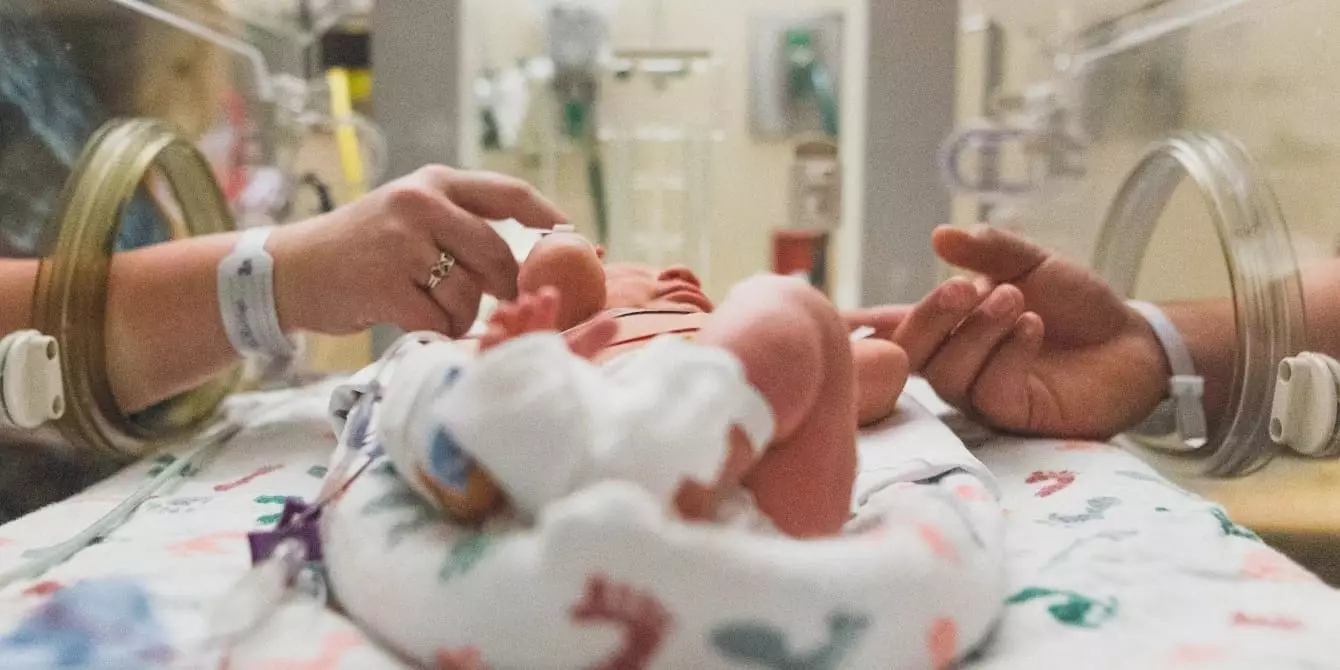Entering the world of a Neonatal Intensive Care Unit (NICU) is a profound experience, one that is often laden with emotional trepidation and uncertainty. Many might not fully grasp the psychological impact of having a baby in such a high-stakes environment unless they have lived through it themselves. Studies underscore a grim reality: parents of preterm infants face a significantly heightened risk of developing mental health issues, including but not limited to anxiety, depression, and post-traumatic stress disorder (PTSD). This escalation of mental health challenges is hardly surprising when considering the highly charged atmosphere of a NICU. Unfortunately, the medical community often prioritizes the health of the newborns while inadvertently neglecting the psychological well-being of the parents.
The authors of various studies insist that mental health support for NICU parents should be systematically integrated into their care protocols. This includes not just acknowledgment, but also tailored assistance addressing specific contexts—such as the challenges faced by non-English speaking families or those living in rural regions without immediate access to healthcare resources. The lack of mental health support becomes a glaring oversight, especially when many families find themselves grappling with fear, uncertainty, and grief during such a vulnerable time.
The Parent’s Silent Struggle
I recount my own NICU experience with a mix of gratitude and trauma. While medical professionals played a pivotal role in my child’s care, I found my mental health crisis was met with silence. It was as if my husband and I were left adrift in an emotional ocean, without a lifeboat in sight. This sentiment is echoed by countless parents who feel isolated during an excruciatingly vulnerable time—a period when they are expected to be both resilient and adaptable.
Though I was fortunate to have a supportive partner, family, and healthcare team to lean on, the pressure often felt overwhelming. The days spent at my child’s bedside were a testament to our strength, but also a crucible of personal vulnerability. As time passed, I discovered that my story, filled with both challenges and triumphs, could serve as an anchor for others experiencing similar struggles. The purpose became clear: to empower and guide other NICU parents through education and resources.
The Overlooked Dimension of Emotional Care
Despite living in one of the world’s most advanced medical landscapes, the conversation around mental health remains stunted. Why is it that parents of premature infants are often left ensnared in their emotional turmoil, forced to navigate the labyrinth of grief and worry alone? As someone who has traversed this path, I believe it’s essential to advocate for a change—a holistic approach that recognizes the dual needs of both infant and parent.
From my 77-day NICU journey, I gleaned a few insights that could benefit others walking this challenging path. The NICU environment is rife with stimuli—from incessant machinery to the busy footsteps of medical professionals. For many parents, this can lead to sensory overload, contributing to heightened anxiety. Though it is impossible to control the external chaos, implementing mindfulness techniques, such as breathwork or comforting audio stories can be invaluable assets in restoring inner peace.
Writing proved to be another indispensable coping strategy during this tumultuous time. I made daily journal entries capturing not only my child’s medical progress but also my own emotional highs and lows. Each entry became a tangible testament to our experience—a record of resilience that I plan to pass on to my daughter one day. Similarly, creating journal prompts tailored for NICU parents can help facilitate this necessary reflection and process of emotional catharsis.
However, journaling isn’t a solitary solution. Once home, the emotional reverberations of life in the NICU continue to affect parents, often intensifying feelings of isolation. It’s crucial for families to recognize that the journey doesn’t conclude when they leave the hospital. Parental anxiety and self-doubt can continue long after discharge. Seeking professional support—whether through therapy or peer counseling—can be immensely beneficial in managing these lingering emotions.
During the arduous NICU experience, many parents neglect their own needs, sacrificing self-care for the sake of time spent at their child’s bedside. Yet, this is precisely when self-care is most critical. Neglecting oneself can lead to an increased susceptibility to anxiety, depression, and PTSD. Engaging in simple self-care practices—whether it’s seeking social support, engaging in physical activities, or practicing mindfulness—could provide much-needed emotional respite.
In an environment where NICU staff are often stretched thin, parent mental health frequently falls through the cracks. Even though healthcare professionals witness parental grief firsthand, there is typically no structured protocol in place designed to support them through these dark moments. Recognizing the need for integrated mental health care is not merely beneficial; it is essential.
The time is now to recognize the multi-faceted nature of trauma in the NICU setting. A comprehensive approach to mental health that includes emotional support for parents is not just a luxury, but a necessity. As advocates for NICU parents, we should demand systemic changes that prioritize both child and parental wellbeing. The journey may be challenging, but the profound strength found in adversity can lead us to a more compassionate, integrated healthcare future. Ultimately, as difficult as the circumstances may feel, the mantra remains: you are not alone, and your emotional struggle is valid.

